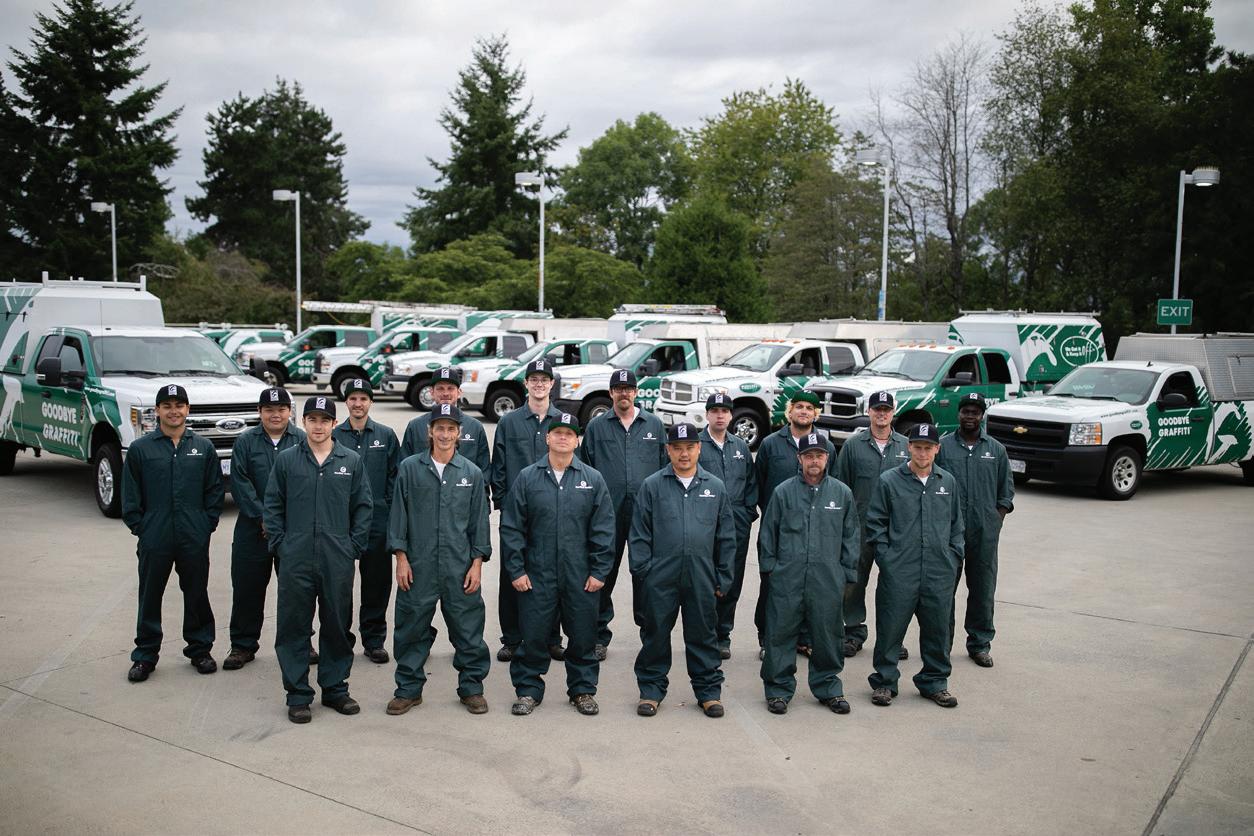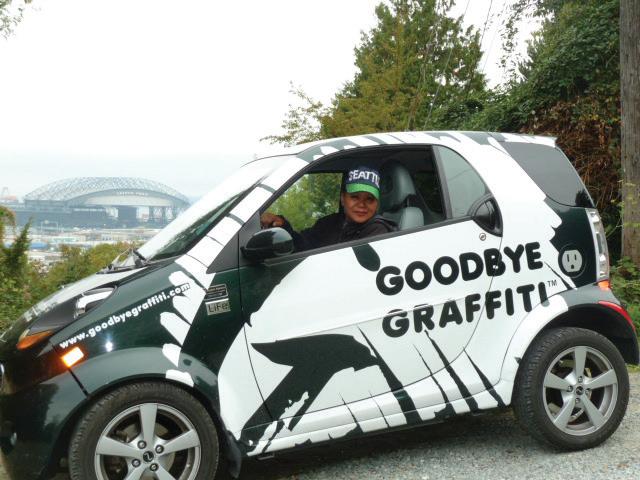
2 minute read
Creating a Culture for Success
by Elizabeth Denham
Advertisement
This keen focus on culture and employee cultivation is what Laurie Spivack, CEO and President of Goodbye Graffiti USA, credits with the success of her business. Goodbye Graffiti USA is a franchise based in Seattle and offers graffiti removal, power washing, maintenance programs and anti-graffiti coating services.
“Culture is critical in the success of a business,” Spivack said. “I work hard to create a family-feel among our employees. I want people to be excited to come to work.”
Spivack uses training, personal responsibility and benefits to create the kind of atmosphere that keeps employees engaged. She offers a robust benefits plan, public transportation subsidies and a living wage for every employee.
“I measure the success of the Seattle operation by two main things: 1. More than half of our employees have been with us for more than three years, one for 14 years. 2. People call us and ask us to take care of them when they have graffiti issues. They trust us to show up and solve their problems.”
Spivack is in a unique business in that you never lack for jobs.
“There is always graffiti,” she said. “And our business model offers several revenue streams. In addition to graffiti removal and power washing, we offer an anti-graffiti coating which makes it easier to clean surfaces. Once coated, you can use hot water to remove graffiti using less water and no chemicals which is good for the environment. The coating needs to be done every three years, so these customers keep calling.”
Another recurring revenue stream is the Ever-Clean Program. This is a contracted service that puts customers on a weekly patrol route, and Goodbye Graffiti removes any graffiti they find for a flat-rate, monthly fee.
Spivack has created a strong training program for her franchisees which includes training on how to find opportunities and write proposals for government contracts.
“A lot of our customers are city governments and municipalities, so we include that assistance in our 200 hours of operations training,” Spivack said. “We wouldn’t be alive without government contracts.”

New franchisees come to the Seattle office and immerse themselves in the operations. They learn technical processes, best practices for graffiti removal, software and operations procedures, marketing strategies and networking ideas.
“I get great satisfaction out of creating and providing jobs to people,” Spivack said. “Recruiting new franchisees into business ownership and helping them create good jobs for people, that’s my dream. I offer generous territories because I want each owner to make a good living and feel satisfaction in helping others work.”
For more information, visit www. goodbyegraffitiusa.com/












